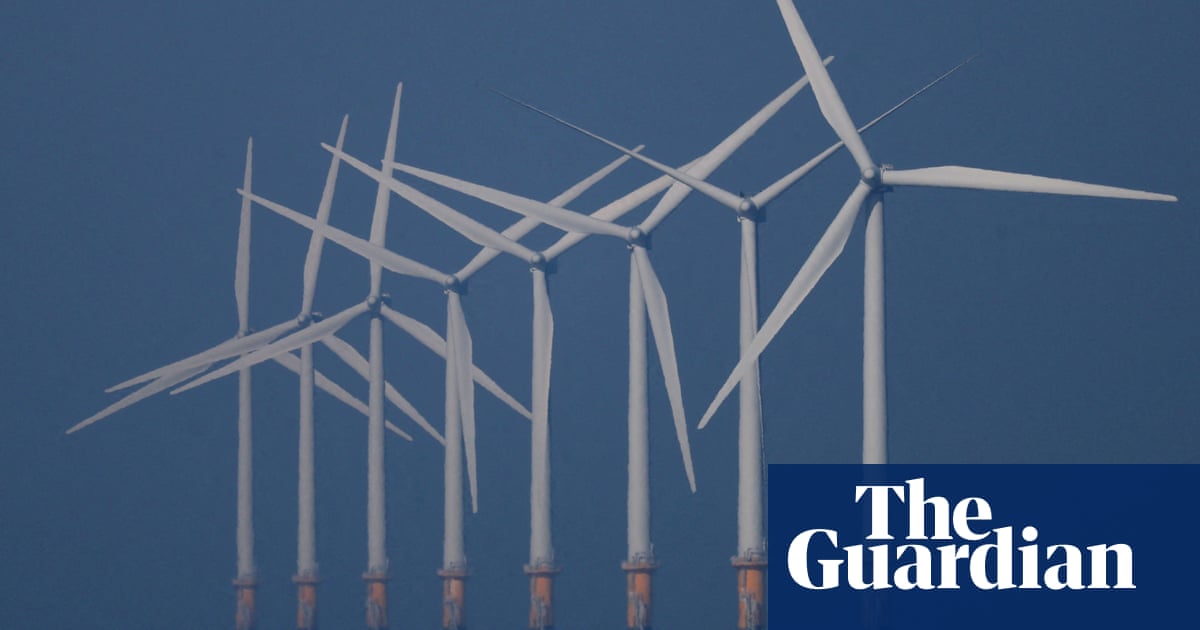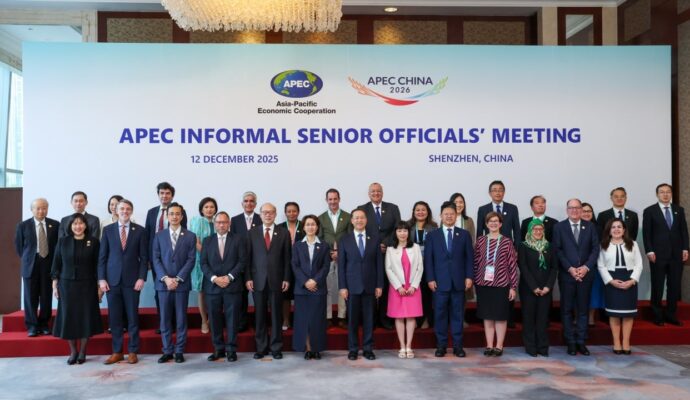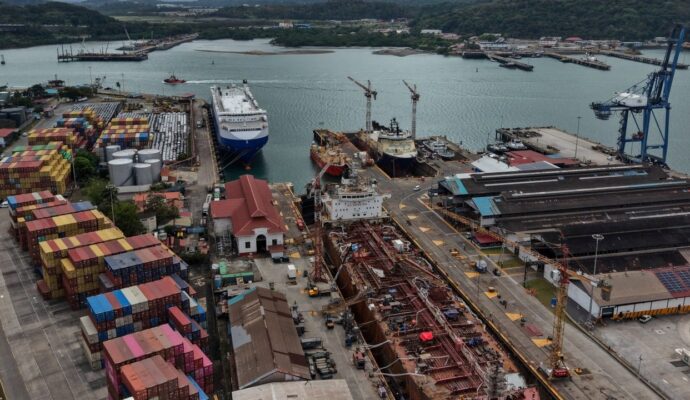
Ministers are weighing up proposals for a Chinese company to supply wind turbines for a major offshore windfarm in the North Sea.
The government is in discussions with Green Volt North Sea over whether Mingyang, China’s biggest offshore wind company, should supply the wind turbines. Mingyang has emerged as the preferred manufacturer, but the company has sought advice from ministers on whether to proceed.
Green Volt, which is jointly owned by Flotation Energy, a Scottish company and Vårgrønn, a Norwegian one, is constructing the first commercial-scale floating offshore windfarm in Europe. The project will deliver electricity to oil and gas platforms, replacing power currently generated by gas and diesel turbines, and provide electricity to the UK grid.
The decision over whether to source its wind turbines from Mingyang will be closely scrutinised after the government stepped in to take control of British Steel amid claims that its Chinese owner, Jingye Group, wanted to shut down its Scunthorpe plant to make the UK a dumping ground for Chinese steel.
The incident triggered calls for Chinese companies to be locked out of involvement with critical national infrastructure. Jonathan Reynolds, the business secretary, said at first that he would not bring another Chinese company into the British steel sector before softening his position.
Ed Miliband, the energy secretary, travelled to China earlier this spring to discuss closer cooperation on energy and climate.
The decision over whether Mingyang can supply the turbines is not subject to any formal government process, but the company is unlikely to proceed if ministers say they have security concerns.
The Sun reported three months ago that some officials in the Ministry of Defence and Department for Energy Security and Net Zero had raised concerns about the proposed deal. Green Volt has been waiting for a verdict from the government for weeks, according to people familiar with the discussions.
An industry source said the UK did not currently have the heavy manufacturing capability to produce the turbines domestically. “They have tried to get European manufacturers to no avail,” the source said of Green Volt. “Miliband is on to something here. We all want to get to where he wants to get to, but if it’s not from Chinese companies, who is going to [supply wind turbines] to us?”
The project would be an important contributor to the government’s mission to achieve net zero carbon emissions by 2050. Progress towards that suffered a blow this week when the Danish company Ørsted cancelled its plans to build one of the UK’s largest offshore windfarms, the Hornsea 4 project. Ministers are hopeful that Ørsted will return to the table, however.
after newsletter promotion
Mingyang has also come under scrutiny in Germany, where it is supplying wind turbines for the Waterkant offshore windfarm. The Guardian contacted Mingyang for comment.
A Green Volt spokesperson said: “We are developing the largest commercial-scale, floating offshore windfarm in the world, working to hugely ambitious timelines to deliver the government’s goal of 43-50 GW of offshore wind by 2030. Having secured a contract for difference from the government last year, we are identifying supply chain partners to help us build the windfarm. As yet, no turbine supplier has been confirmed for Green Volt. We will comply with any government regulation and guidance around security of critical national infrastructure in the selection of all our suppliers.”
A government spokesperson said: “We would never let anything get in the way of our national security, and while we would not comment on individual cases, investment in the energy sector is subject to the highest levels of national security scrutiny.
“We are undergoing rigorous processes to look at the role of China in our supply chain and investment in critical infrastructure – taking into account the national security considerations, as well as our need for investment in the supply chain.”

